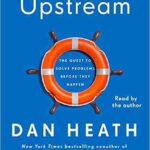Not long ago, I was driving through Denver in rush hour traffic. As I inched along in traffic, I was replaying a discussion in my head about the Colorado Springs ecosystem being the red-headed stepchild to Denver’s much more robust business ecosystem. Most of the discussion was geared toward activities the Colorado Springs ecosystem could do to grow into a bigger economic powerhouse and be more like Denver. The problem is that I live where I live for precisely the reason it is not Denver.
Denver is much bigger than Colorado Springs. The Denver metro area is ranked as the 19th largest metro area in the U.S. with over 2.8 million people according to 2015 census figures. The Colorado Springs metro is ranked 80th with only 697 thousand people, or about ¼ the size. With their added size comes way more problems not experienced in Colorado Springs such as pollution, traffic, and less affordable housing.
Most business owners are obsessed with growth. Yet, as your business grows, your problems grow as well. Not all growth is good. In fact, growth can uncover chinks in your business model you never knew were there. Just like the growth of a metro area puts stress on its infrastructure, manifesting itself in things like increased highway congestion, business growth places stress on its infrastructure as well.
To illustrate this point, imagine you are a small local baker and you are contracted to make ten apple pies for a client’s party. You might simply go to your apple pie recipe, multiply the ingredient list by ten, and go to your local grocery store to pick up your supplies. However, if you were contracted to make one thousand apple pies for a convention, it is not simply a matter of multiplying the ingredient list by one thousand.
The larger-scale process might involve buying the apples on the commodity market, hiring a trucking firm to deliver them, renting huge ovens to bake them, and hiring additional staff to make them. Your current infrastructure and processes would be completely inadequate for the job. Of course, this is an extreme example, but you get the point. As you scale, it is not simply a matter of being the same only bigger; it stresses everything in your system to the breaking point.
Remember, it is not how much you make, but your standard of living that is the most important. This concept is discussed more fully in my book, Before You Leap – Uncommon Things You Should Know Before You Become An Entrepreneur.
Many years ago, I visited an old friend named Peter Henderson I had grown up with in New York. At one point, my friend mentioned that his brother lived in Manhattan and made over $100k per year selling rugs. $100k is a lot of money and back in the early 80’s that was really a lot of money. I was impressed and remember thinking maybe I should move back to New York since I could earn a lot more money. What I failed to realize then was that $100k didn’t go very far in New York City.
A few years later I took a job near Boston, lured by the fact that the job paid more money. I soon learned that even with a higher paycheck, I could not afford to live anywhere near where I worked. I had to endure a long traffic filled commute every day just to be able to afford a place to live.
Today, I may not have a huge mansion with a yacht docked in my backyard, but I work for myself and live a very comfortable and relatively stress-free life.
A friend of mine, Patrick Bultema, who is a venture capital CEO, has often said he envies the fact that I’m a small business guy. I guess we all think the grass is greener on the other side. Big company executives dream of being a small business owner while small business owners dream of growing large companies.
What I have learned is it is less about your business size or income level in the short-term and more about doing something with your life that is making a positive difference in the world. I think Patrick would agree as he is currently the chairman of FoodMaven.
Matt Drudge curates the Drudge Report and is just one guy. His website is just a bunch of outbound links to other stories on the internet and the website is not pretty by any stretch of the imagination. However rather than growing his business, he has focused on aggregating content his readers want and continue to consume. As a result, Matt gets somewhere between two and three million views per day and has made a huge impact on the news industry.
The business lesson here is that building a bigger business is not always better. Business growth aspirations have to be tempered with the quality of life and other factors. Why blindly follow the crowd? Instead, evaluate what things are important and what matters to you.
Are you bought into “bigger is always better” mentality or are you focused on the things that are really important to you and others?












